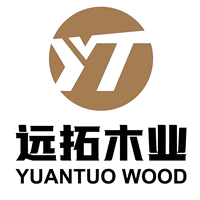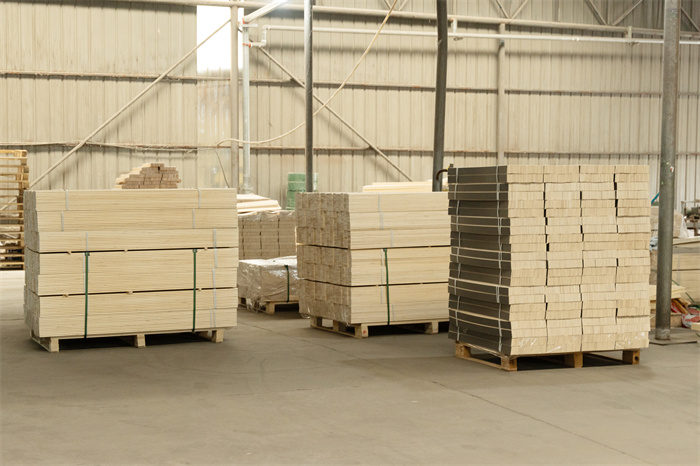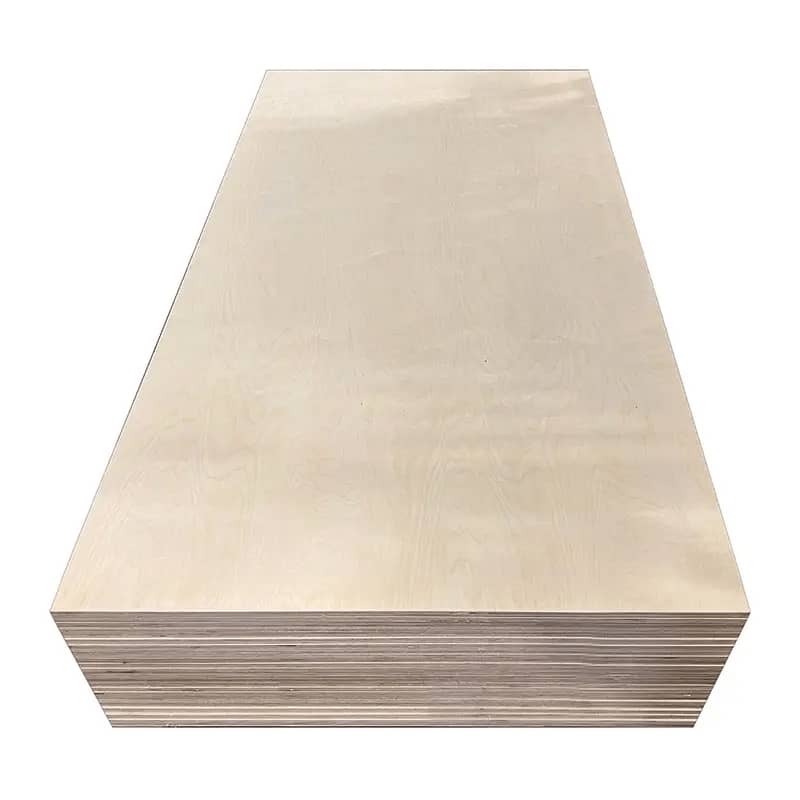Navegar no corredor da madeira pode parecer uma travessia por uma terra estrangeira, especialmente quando se trata de adquirir contraplacado. Com inúmeras opções a disputar a sua atenção, surge frequentemente uma questão: contraplacado nacional ou importado? Esta decisão, muitas vezes envolta em equívocos, pode ter um impacto significativo no orçamento, no calendário e, em última análise, no sucesso do seu projeto.
Este guia completo aprofunda as contraplacado nacional vs. contraplacado importado equipando-os, nossos valiosos parceiros de negócios, com os conhecimentos necessários para tomar decisões informadas sobre o fornecimento. Vamos desfazer mitos comuns, dissecar as nuances da qualidade, do custo e da disponibilidade, e capacitá-lo para escolher com confiança o melhor contraplacado para as suas necessidades específicas.
Contraplacado nacional: Um olhar mais atento à qualidade da produção nacional
O contraplacado nacional refere-se ao contraplacado fabricado no seu país de operação, utilizando madeira proveniente de florestas locais. Evoca frequentemente uma sensação de familiaridade, fiabilidade e apoio às indústrias locais. Mas, para além destes sentimentos, existem factores tangíveis que contribuem para a sua atração.
Vantagens do contraplacado nacional:
- Controlo de qualidade rigoroso: Os fabricantes nacionais de contraplacado aderem frequentemente a normas e regulamentos de qualidade rigorosos, garantindo uma qualidade e um desempenho consistentes. Estas normas, frequentemente aplicadas por associações industriais ou agências governamentais, proporcionam um nível de garantia e responsabilidade.
- Apoiar as economias locais: A escolha de contraplacado nacional apoia diretamente os empregos locais, as práticas florestais e a economia em geral. Este efeito cascata pode fortalecer as comunidades e promover o crescimento sustentável da indústria.
- Redução dos custos de transporte e dos prazos de entrega: O aprovisionamento a nível nacional traduz-se frequentemente em custos de transporte mais baixos e prazos de entrega mais curtos, especialmente para encomendas de grandes dimensões. Isto pode ser uma vantagem significativa para projectos sensíveis ao tempo ou para empresas que operam com prazos apertados.
- Inventário prontamente disponível: Os fornecedores nacionais de contraplacado mantêm normalmente um inventário prontamente disponível, minimizando potenciais atrasos e assegurando um processo de aquisição mais suave. Esta acessibilidade pode ser crucial para projectos que requerem disponibilidade imediata de material.

Potenciais inconvenientes do contraplacado nacional:
- Limitado Espécies de madeira: Os fornecedores nacionais podem oferecer uma seleção limitada de espécies de madeira, restringindo potencialmente as opções de design ou exigindo compromissos com base na disponibilidade.
- Flutuações de preços: Os preços do contraplacado no mercado interno podem ser susceptíveis de flutuações nos preços locais da madeira, na procura do mercado e nas variações sazonais.
- Custos laborais mais elevados: Os custos laborais mais elevados em algumas regiões podem contribuir para um preço global mais elevado do contraplacado nacional em comparação com as opções importadas.
Contraplacado importado: Explorando o cenário global
O contraplacado importado, como o nome sugere, é originário de fabricantes fora das fronteiras do seu país. Embora seja frequentemente considerado como uma opção mais económica, o contraplacado importado abrange um vasto espetro de qualidade, regulamentos e práticas de abastecimento.
Vantagens do contraplacado importado:
- Poupança de custos: O contraplacado importado, particularmente de regiões com custos de mão de obra e de produção mais baixos, pode oferecer poupanças significativas, especialmente para projectos de grande escala.
- Diversas espécies de madeira: O acesso a uma gama mais alargada de espécies de madeira, incluindo variedades exóticas ou especiais, alarga as possibilidades de design e responde a diversas preferências estéticas.
- Mercado global competitivo: A natureza competitiva do mercado mundial de contraplacado pode impulsionar a inovação, a eficiência e a competitividade de preços entre os fornecedores.
- Especialização: Algumas regiões desenvolveram conhecimentos especializados em tipos específicos de contraplacado ou técnicas de fabrico, oferecendo acesso a produtos ou capacidades únicas.
Foco na importação da China: Uma potência na produção de contraplacado
A China emergiu como um dos principais fornecedores mundiais de contraplacado, oferecendo uma combinação atraente de factores que beneficiam os compradores mais exigentes:
- Preços competitivos: Os processos de fabrico eficientes e as economias de escala da China traduzem-se muitas vezes em preços altamente competitivos, tornando-a uma opção atractiva para projectos preocupados com o orçamento.
- Vasta capacidade de produção: A China possui uma vasta capacidade de produção de contraplacado, capaz de satisfazer encomendas em grande escala e de satisfazer os exigentes requisitos dos projectos.
- Vasta gama de produtos: Os fabricantes chineses oferecem uma gama diversificada de produtos de contraplacado, que se destinam a várias aplicações, desde a construção e o mobiliário até às utilizações decorativas e especializadas.
- Flexibilidade e personalização: Os fornecedores chineses são frequentemente conhecidos pela sua flexibilidade em acomodar encomendas personalizadas, especificações específicas e requisitos de design únicos.
- Apoio e investimento do governo: O governo chinês tem feito investimentos significativos na sua indústria de contraplacado, promovendo o crescimento, a inovação e o comércio internacional.
Potenciais inconvenientes do contraplacado importado:
- Variações de qualidade: As normas e regulamentos de controlo de qualidade podem variar significativamente entre países, o que pode levar a inconsistências na qualidade, durabilidade e desempenho.
- Tempos de espera mais longos: A importação de contraplacado implica frequentemente prazos de entrega mais longos devido às distâncias de transporte, ao desalfandegamento e a potenciais desafios logísticos.
- Flutuações cambiais: As flutuações da taxa de câmbio podem ter impacto no custo final do contraplacado importado, introduzindo um nível de incerteza financeira, especialmente para projectos a longo prazo.
- Preocupações ambientais: O abastecimento a partir do estrangeiro suscita preocupações quanto às práticas florestais sustentáveis, à desflorestação e ao impacto ambiental do transporte a longa distância.
Comparação direta: Contraplacado nacional vs. contraplacado importado
Tabela 1: Principais considerações sobre o contraplacado nacional e o contraplacado importado
| Caraterística | Contraplacado doméstico | Contraplacado importado |
|---|---|---|
| Controlo de qualidade | Normalmente mais rigoroso e coerente | Pode variar significativamente entre países e fabricantes |
| Custo | Geralmente mais elevado devido aos custos de mão de obra e de produção | Potencialmente mais baixos, especialmente de regiões com custos de produção mais baixos |
| Disponibilidade | Frequentemente disponível com prazos de entrega mais curtos | Pode implicar prazos de entrega mais longos devido ao transporte e à alfândega |
| Espécies de madeira | Pode oferecer uma seleção limitada de espécies domésticas | Acesso a uma gama mais vasta de espécies de madeira, incluindo variedades exóticas |
| Impacto ambiental | Apoia as economias locais e as práticas florestais sustentáveis | Preocupações com a desflorestação, as emissões dos transportes e as diferentes regulamentações ambientais |
Tomar decisões informadas: Factores a considerar
A escolha entre contraplacado nacional e contraplacado importado não é uma decisão única. Vários factores devem orientar a sua escolha, assegurando que seleciona a melhor opção para o seu projeto específico e para as suas necessidades comerciais.
1. Orçamento do projeto:
- Projectos sensíveis aos custos: O contraplacado importado, especialmente de regiões com custos de produção mais baixos, pode oferecer poupanças de custos significativas, tornando-o uma opção atractiva para projectos que se preocupam com o orçamento.
- Projectos de elevado valor: Para projectos em que a qualidade e a consistência são fundamentais, o rigoroso controlo de qualidade e o desempenho fiável do contraplacado nacional podem justificar um investimento inicial mais elevado.
2. Cronograma do projeto:
- Projectos sensíveis ao fator tempo: Os prazos de entrega mais curtos do contraplacado nacional e o inventário prontamente disponível podem ser cruciais para projectos com prazos apertados ou que exijam disponibilidade imediata de material.
- Prazos flexíveis: Se os prazos do projeto permitirem prazos de entrega mais longos, o contraplacado importado pode ser uma opção viável, proporcionando tempo para navegar na logística de expedição e potenciais atrasos aduaneiros.
3. Requisitos de qualidade:
- Aplicações exigentes: Os projectos que exigem uma resistência excecional, durabilidade e desempenho consistente, tais como aplicações estruturais ou áreas de tráfego intenso, podem beneficiar da qualidade fiável do contraplacado nacional.
- Aplicações estéticas: A maior variedade de espécies de madeira de contraplacado importado, incluindo variedades exóticas ou visualmente apelativas, pode aumentar o apelo estético para projectos em que a aparência é uma consideração primordial.
4. Considerações ambientais:
- Foco na sustentabilidade: A escolha de contraplacado nacional apoia as economias locais, as práticas florestais sustentáveis e reduz o impacto ambiental associado ao transporte de longa distância.
- Verificação do abastecimento sustentável: Ao considerar a importação de contraplacado, dê prioridade a fornecedores empenhados em práticas florestais sustentáveis, certificados por organizações de renome como o Forest Stewardship Council (FSC).
5. Relações com os fornecedores:
- Parcerias estabelecidas: Tirar partido das relações existentes com fornecedores nacionais de confiança pode simplificar os processos de aquisição, garantir uma comunicação fiável e proporcionar tranquilidade.
- Explorar novas oportunidades: Aventurar-se no mercado global de contraplacado importado pode abrir portas a novas relações com fornecedores, potencialmente descobrindo espécies de madeira únicas, preços competitivos ou capacidades de fabrico especializadas.
Navegar no mercado global de contraplacado: Dicas para o sucesso
Quer opte por contraplacado nacional ou importado, estas sugestões podem ajudá-lo a navegar eficazmente no mercado e a tomar decisões de abastecimento informadas:
- Estabelecer parcerias com fornecedores de renome: Pesquise minuciosamente os potenciais fornecedores, verificando as certificações, as afiliações à indústria e as opiniões dos clientes para garantir o seu compromisso com a qualidade, o fornecimento ético e um serviço fiável.
- Solicitar amostras: Antes de se comprometer com grandes encomendas, peça amostras a diferentes fornecedores para avaliar em primeira mão a qualidade, o aspeto e a consistência do seu contraplacado.
- Verificar certificações: Procure contraplacado certificado por organizações de renome como o Forest Stewardship Council (FSC) para garantir que provém de florestas geridas de forma responsável.
- Compreender os sistemas de classificação: Familiarize-se com os sistemas de classificação do contraplacado, que variam de país para país, para garantir que está a comparar maçãs com maçãs ao avaliar a qualidade e o preço.
- Negociar preços e condições de pagamento: Não hesite em negociar preços, especialmente para grandes encomendas, e estabeleça condições de pagamento claras para proteger os seus interesses comerciais.
- Fator de expedição e de logística: Considere os custos de transporte, seguro, direitos aduaneiros e potenciais desafios logísticos ao calcular o custo total do contraplacado importado.
- Comunicar de forma clara com os fornecedores: Estabeleça canais de comunicação claros com os fornecedores, descrevendo os seus requisitos específicos, expectativas de qualidade e prazos de entrega para minimizar mal-entendidos e potenciais atrasos.
Por que escolher Yuantuo Wood para suas necessidades de madeira compensada?
Em Madeira YuantuoA nossa empresa, a Firma, compreende as complexidades do fornecimento de contraplacado e esforça-se por ser o seu parceiro de confiança para navegar no mercado global. Eis porque é que as empresas mais exigentes nos escolhem:
- Experiência global em sourcing: Aproveitamos a nossa vasta rede e o nosso conhecimento do sector para obter contraplacado de primeira qualidade de fabricantes nacionais e internacionais, incluindo os principais fornecedores da China.
- Compromisso inabalável com a qualidade: Mantemos rigorosos padrões de controlo de qualidade, garantindo que cada folha de contraplacado cumpre as suas especificações exactas e requisitos de desempenho.
- Preços competitivos e soluções flexíveis: Oferecemos preços competitivos em todos os nossos produtos e trabalhamos em estreita colaboração consigo para criar soluções que se adaptem ao seu orçamento e às necessidades do seu projeto.
- Logística fiável e entrega atempada: A nossa experiente equipa de logística assegura uma entrega suave e atempada, minimizando potenciais atrasos e mantendo os seus projectos no bom caminho.
- Apoio ao cliente dedicado: Orgulhamo-nos de prestar um apoio excecional ao cliente, orientando-o em todas as etapas do processo de aprovisionamento e tratando das suas preocupações com o máximo cuidado.
Faça uma parceria com a Yuantuo Wood e experimente a diferença de trabalhar com um fornecedor de contraplacado que dá prioridade ao seu sucesso. Contacte-nos hoje para discutir os seus requisitos específicos e deixe-nos ajudá-lo a encontrar o contraplacado perfeito para o seu próximo projeto.
Conclusão: Fazer a escolha certa para a sua empresa
A decisão de adquirir contraplacado nacional ou importado é multifacetada, influenciada por uma complexa interação de factores. Pesando cuidadosamente os prós e os contras, tendo em conta as necessidades específicas da sua empresa e estabelecendo parcerias com fornecedores de renome, pode navegar com confiança no mercado do contraplacado e garantir os melhores materiais para os seus projectos.
Lembre-se, conhecimento é poder. Armado com os conhecimentos deste guia, está bem equipado para tomar decisões informadas, otimizar as suas estratégias de aprovisionamento e, em última análise, conduzir o seu negócio ao sucesso.



